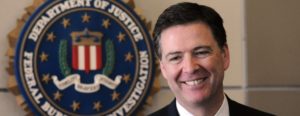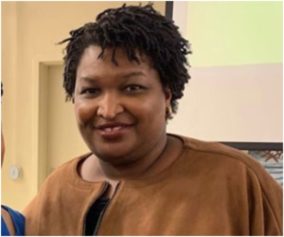
At a summit this week, FBI Director, James B. Comey, stated his “embarrassment” about the lack of effort on the part of the Bureau to not have a system for accurately recording and reporting this data. He was specifically agitated by the fact that both the Washington Post and the UK news site The Guardian seem to have better reporting of these statistics than the Bureau, as they have committed to recording these instances for 2015.
“It is unacceptable that the Washington Post and the Guardian newspaper from the UK are becoming the lead source of information about violent encounters between police and civilians. That is not good for anybody,” Comey said.
The summit’s focus was on reducing violent crime and was attended by 100 legislators and law enforcement personnel. In the wake of Comey’s statements to legislators, U.S. Attorney General Loretta Lynch also announced plans for the Justice Department to begin collecting and aggregating the data as well through an open-source system of collection that will track the number of fatalities in police-civilian shootings, deaths while in police custody, non-fatal police-civilian shootings, and incidents of excessive force. However, Lynch stops short at making the reporting of this information a requirement.
“The Department of Justice is not trying to reach down from Washington and dictate to every local department how they should handle the minutia of record keeping, but we are stressing to them that these records must be kept,” said Lynch in an interview with NBC’s Chuck Todd.
Why does the collection of data involving police-civilian interactions that result in death or injury seem to be such a difficult task?
The main challenge that researchers found across interviews with law enforcement, statisticians and other agencies, is that differences in accounting procedures lead to inaccuracies in reporting. Essentially, each agency, bureau, and local law enforcement division has a different method for capturing this data and assigning meaning to the information that is collected. For example, what a police department in Ferguson deems as excessive force may not be the same for a police department in Pensacola, Florida, and, therefore, the numbers may actually be skewed and/or under reported.
Even if the federal government is able to provide a salient number, public perception and acceptance may not be what they hope due to mistrust between law enforcement and communities of color.
The San Francisco Police Officers Association (POA) is coming under fire for an advertisement that says officers don’t racially profile. The Black officers association, Officers for Justice, have denounced the ad, in a letter to the POA.
“The selected words, voice and dialogue comes across as telling the community what they need to know as an indisputable ‘matter of fact.’ It demonstrates a lack of experience in conferring with minorities, reflects denial of any responsibility for strained relationships with members of the black and brown communities; this verbiage will continue to lead to additional misunderstandings,” the letter stated.
In addition to the advertisements from that POA, a Memphis-based firm, Tactical Magic, has been posting “Blue Lives Matter” signs across communities throughout the country. Signs have been spotted in Ohio, Michigan, Florida, Georgia and Connecticut. The sign is a play on the hashtag and social movement, “Black Lives Matter,” and is seen by many African-Americans as a display of disrespect by those who believe that the officers involved in the shootings of unarmed Black men and women were justified.
Although, the company says their intent is to only honor the men and women who serve in law enforcement, many believe their intent to be more malicious and that the “Black Lives Matter” slogan is being appropriated and misused by Tactical Magic to send a message.
“This effort to co-opt the Black Lives Matter Movement is totally unnecessary,” said Scot Esdaile, President of the Connecticut NAACP, in a statement to the press.
Even though these billboards are not the work of law enforcement agencies, the advertisements in San Francisco are affiliated with the police union and if the information is to come directly from departments and be reported to the FBI, how reliable is that data and how strong will public confidence be in the results? This remains to be seen.
What we do know is that only the data that is reported can be publicly disseminated and to-date, there has been inconsistent participation of the part of states to report this information to the FBI and the two other federal agencies collecting the information. Without some sort of federal mandate to compel states to provide the numbers in an accurate and timely fashion, it is highly unlikely the FBI will be able to get the information they seek or that the public will get the answers they deserve.


